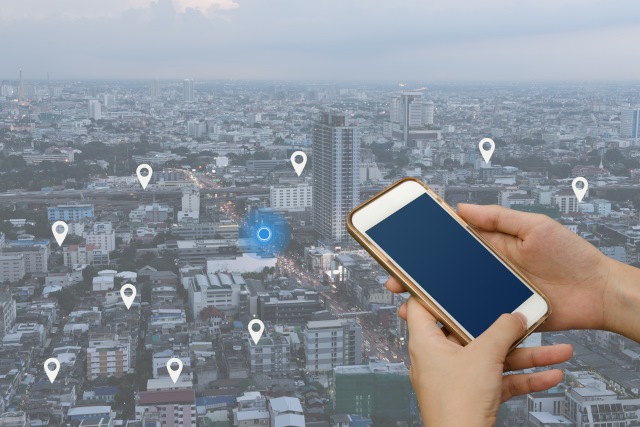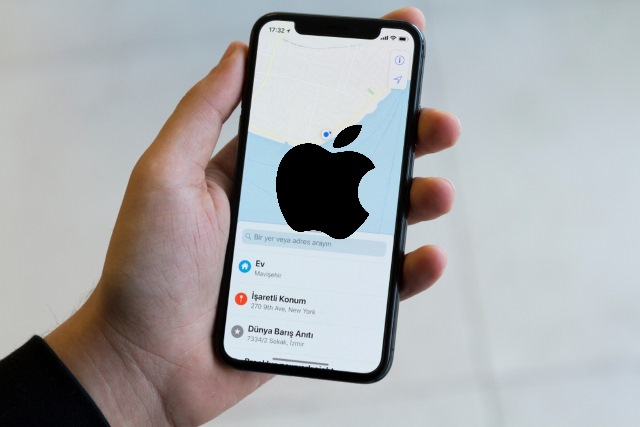
Watch Mark Zuckerberg's testimony to the EU in a livestream
Having previously refused to answer questions in the UK, last week Mark Zuckerberg agreed to appear in front of the EU parliament to speak about Facebook's use of data.
The Facebook chief is due to appear in front of MEPs tomorrow, Tuesday, and European Parliament President Antonio Tajani has announced that the appearance will be livestreamed. So, if you fancy tuning in to see what Zuckerberg has to say and how he is able to "clarify issues related to the use of personal data", you will be able to do just that.

Google quietly relegates 'Don't be evil' from its Code of Conduct
For a long time, the words "don't be evil" were associated with Google. While not an official motto as such, the words were heavily ingrained in the company.
Google's method of operating has caused many people over the years to question the phrase, and when the company was re-organized under Alphabet the motto became "do the right thing". Nonetheless, in the Google Code of Conduct which is given to employees, "don't be evil" remained -- until just a few weeks ago when it was quietly relegated.

FCC investigates LocationSmart website for leaking location data for users of major US mobile carriers
LocationSmart, a company based in Southern California, is under investigation by the FCC after it was discovered that its website made it possible for just about anyone to access location data for the majority of US cell phones.
Security expert Brian Krebs reported that a bug on the LocationSmart website made it possible for anyone to check on the location of any AT&T, Sprint, T-Mobile or Verizon phone in the US. Even more worryingly, the data is said to be accurate to a few hundred yards.

Mark Zuckerberg agrees to appear in front of EU parliament to answer questions about Facebook's use of data
After refusing to answer questions in the UK, Mark Zuckerberg has agreed to face questions in front of the EU Parliament. The grilling comes in the wake of the Cambridge Analytica privacy scandal.
The Facebook CEO could answer questions about the social network's use of data very soon, with the president of the European Parliament, Antonio Tajani, saying that "hopefully" it could happen next week.

UK Reported security incidents increase ahead of GDPR
When GDPR comes into force next week, organizations will have 72 hours to report security breaches to a regulator once they become aware of them.
Ahead of the new legislation, the UK's Information Commissioner's Office (ICO) has released details of the latest data security trends. Reported incidents in the final quarter of 2017 showed a 17 percent increase over the previous quarter, perhaps indicating that companies are taking a more proactive approach to reporting as GDPR approaches.

Kaspersky to move data from Russia to Switzerland to improve transparency
Kaspersky Lab has announced that it plans to move data out of Russia and into a new data center in Switzerland. The move is part of the company's Global Transparency Initiative which came in response to concerns about ties to the Russian government.
Software produced by Kaspersky has already been banned from US government systems, and the company has been on a mission to prove that Russia is not spying on other countries via its antivirus tools.

Facebook launches Youth Portal to tell teenagers how it uses their data
Facebook has launched a new Youth Portal with the aim of educating its teenage users about using the social network safely.
The portal also reveals to teens how Facebook uses their data, and is packed with tips about using the service and translates the site's Data Policy into a more understandable form.

Google explains its handling of user data ahead of GDPR and reveals new privacy policy
There's now just two weeks until the new General Data Protection Regulation (GDPR) law comes into force across Europe. Technology companies have been scrabbling to update their privacy policies in order to comply, and today Google reveals the steps it has taken to become compliant.
In addition to this, the company has also published its updated privacy policy. In keeping with GDPR, this time around the terms are presented in a much more accessible and transparent form.

Companies can turn GDPR compliance into competitive advantage
GDPR comes into force on May 25th and will have an effect on all companies that collect user data even if they are outside the EU.
Independent identity research and strategy company One World Identity has produced a report that aims to serve as a definitive primer on what companies need to do to comply, and help them turn that compliance into a competitive edge.

Apple clamps down on apps that share location data with third parties
Apple appears to be more vigorously enforcing App Store policies relating to the sharing of location data. Over the last few days the company has been removing apps that share location details with third parties without consent.
Developers of apps found to be exploiting user privacy in this way have received emails from Apple. These indicate that apps have undergone "re-evaluation" and found to be in violation of sections 5.1.1 and 5.1.2 of the App Store Review Guidelines.

How managed services can help businesses with GDPR [Q&A]
With GDPR implementation now only weeks away many businesses are still not fully prepared for the impact of the new legislation.
We spoke to Matt Klassen VP of cloud marketing at IT service management specialist Cherwell Software to find out how managed services can help companies to comply with GDPR by the may 25th deadline and to manage the additional workload it's likely to create.

Email management service Unroll.Me to close in Europe because of GDPR
The new batch of privacy related legislations that's due to roll out across Europe later this month has claimed another victim -- Unroll.Me.
The email management service, which claims to help users "clean up your inbox", has announced that it is incompatible with GDPR (General Data Protection Regulation) and will therefore close down in the EU on May 23. If you live in the EU, Unroll.Me will delete your account and you'll no longer be able to use the service.

If Facebook had been GDPR compliant would things have been different?
For almost a decade, most of us using Facebook have trusted it with our personal data. We shared pictures, locations of fun places we visited, friends --old and new -- with whom we connected, 'liked' activities, and much more.
And we did this not knowing our personal information was being used in ways beyond anyone's comprehension. As we watch the Facebook story unfold, we may wonder whether this crisis could have been avoided had personal data privacy and governance been better handled. Such initiatives could be complex and expensive for any company, but is it fair to say there are no shortcuts to this approach? How prepared is any company that relies on personal data?

Facebook's new Clear History privacy tool will let you stop third-party tracking and delete collected info
At its F8 conference today, Facebook revealed details of an upcoming tool it is working on --- Clear History. The tool will let Facebook users not only see which sites and apps gather information about usage, but also let users delete this information.
The privacy-centric tool comes as the social network slowly comes to the realization "that people want more information about how Facebook works and the controls they have over their information". The ability to delete browsing histories from Facebook appears to be a direct response to the Cambridge Analytica scandal in which private data was shared without consent.

73 percent of UK businesses unaware of lawful basis for processing data ahead of GDPR
A few weeks ago we spoke to ThinkMarble about the impending arrival of GDPR and the company's virtual data protection office service.
As the May 25th deadline draws closer, the company has released some research data that shows almost three-quarters of UK businesses are unaware of the lawful basis for processing data and a quarter still don't know, or are unsure of, where the personal data they are responsible for is currently held.
